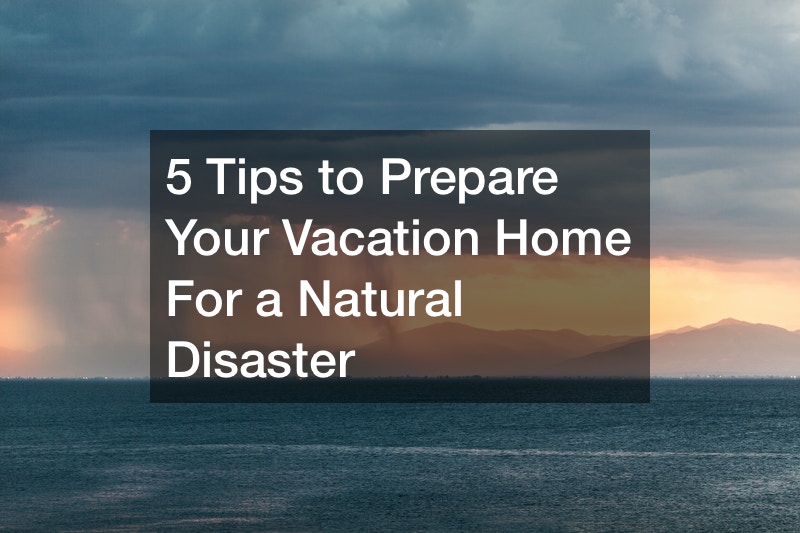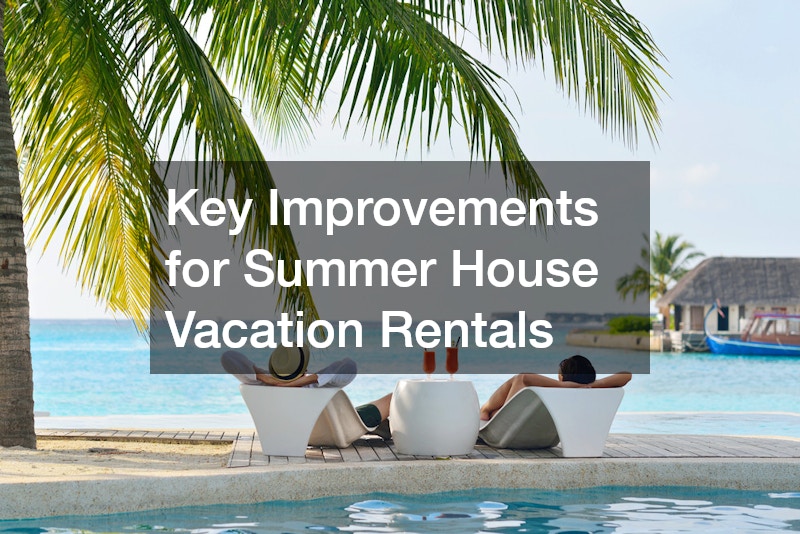Our website may receive compensation from partner links and videos placed in our content.
We are not experts in any particular field. Our content is written by those interested in the various topics, not by professionals. All content is intended to be informational and should not take the place of professional advice. Before making any decisions that could be life altering, please consult with a professional in the field.
A lot more of us have vacation homes these days. In fact, it may actually be more common than you think. Certain counties in the United States are designated as vacation home counties if at least 20% of the county’s available housing was used for seasonal, recreational, or occasional use. And in 2017, a total of 6.6% of American counties were designated as vacation home counties.
There are a wide variety of reasons why people choose to own vacation homes, of course. For some Americans, owning vacation homes is aspirational — something that they grow up wanting to do. It gives them both the comfort of being able to go on a vacation whenever they want and a certain degree of status. Some families, on the other hand, actually own vacation homes together because one person is not able to afford the vacation home individually. They use these vacation homes to make their vacations more affordable, and to simply give them a reason to vacation more often.
Still others like to treat their vacation homes as long-term investments. This has actually become easier in the era of websites like Airbnb and VRBO. These sites allow individuals to rent out their vacation homes for dates and fees that they set. They are able to make money off of their vacation homes when they aren’t using the properties themselves — and whenever they want to get away, they can simply set their calendars to prevent people from booking a stay. There are, therefore, many different benefits to owning a vacation home.
But owning a vacation home also comes with a good deal of risk and complications. Some people who own vacation homes find that the process is actually more complex than they expected, largely because they aren’t constantly living within the home itself. Because the home is not always occupied, it is easier for various issues to crop up and remain unnoticed. These could involve weather damage, security breaching, and much more. Natural disasters are particularly damaging to vacation homes, as they can really occur at any point in time and can be even less predictable than burglars. No matter how often you have security visit your vacation home, that won’t be much help if a hurricane hits the home while you are gone.
That’s why we’re focusing on vacation home security tips that center around preventing long-term damage from natural disasters. The more effort you put into ensuring that your vacation home is safe while you are away, the easier it will be for you to rest easy knowing that the home will be safe and sound when you’re ready to take your trip.

1. Invest In Pool Security
A lot of vacation homes have swimming pools. What is a great vacation without a swimming pool, after all? If your goal is to rent out your home to travelers, a pool can be a significant value-add for your home. With that being said, it’s important that you center some of your vacation home security tips around making sure that your pool is safe in case of a natural disaster. Pools can endure serious damage during storms, becoming flooded over time or becoming clogged with debris that can be quite expensive to clean out.
Therefore, you should first get in touch with a swimming pool service before a storm happens. If you don’t live near your vacation home and cannot take care of your pool on your own, a swimming pool service is a great investment, in general. These types of services can send out pool cleaners on a regular basis to inspect your pool, clean it, and ensure that it is in working order. Pools need regular maintenance in order to be fully functional, so your pool should not be neglected for months on end.
Once you have a swimming pool service employed, you should also consider investing in pool covers. While you may not think of pool covers when trying to come up with vacation home security tips, these covers can cut down on the number of times you need your pool cleaners to visit. These covers keep small animals and insects from getting into your pool. Furthermore, if a natural disaster hits, the pool cover will stand between your pool and expensive damage, saving you potentially thousands of dollars in the long term. Pool covers are also good to have in general during the “off-season” when nobody is swimming. The last thing you want is for a small child to fall into the pool when nobody is looking. Pool covers make swimming pools safer on this level.
2. Strengthen Your Home
There are lots of ways to stormproof your home, which is why this typically falls under some of the most important vacation home security tips. It won’t be cheap to stormproof your vacation home, but it will be worth it. One of the first things you should do is take a quick walkthrough of your house in order to determine what needs replacing and what doesn’t. If your vacation home is in an area prone to storms, it may have been storm-proofed in the past. But that doesn’t mean that the equipment that was installed then is the right fit for your home’s current needs.
When you look at vacation homes for sale, you may not necessarily think to ask about when the windows were last replaced. Therefore, you may not even initially realize that your house needs some new additions in order to ensure that it is as storm-proofed as possible. At this point, it may be a good idea for you to bring on professional contractors to can give you their expert opinions on what needs replacing, repairing, or updating.
Generally speaking, you can expect that you may new windows, as well as hurricane shutters to protect them. Hurricane shutters often lock more tightly and are heavier than ordinary shutters, so they’re more reliable in the midst of a heavy storm. You may also need to look into a new entryway door installation. You may be surprised by how easy it is for doorways to be blown upon during storms with high winds. Stronger garage doors could also be in order in a lot of cases. While vacation home security tips are important, it’s also crucial that you like the results. If you need a new garage door in order to ensure that your vacation home is as safe as possible, take the time to buy a garage door that can be accessed in a way that’s more convenient for you. That way, the update can seem less utilitarian and more enjoyable and exciting.

3. Store Outdoor Decor
A lot of vacation home security tips revolve around warm, dry weather. That’s because most people try to go on vacation during warm, dry weeks. But the fact is that a lot of the decor that you probably bought in order to have a more appealing vacation home could potentially be damaged during a harsh storm. That’s why you need to make sure that it is as secure as possible. More removable decor like patio furniture should be moved into the garage, or if available, a separate space when hurricane season is about to begin. Not only can this kind of decor be lost or damaged itself, but if it’s picked up by high winds, it could also be harmful to anyone in the nearby vicinity. If need be, you can also consider renting out a storage unit in order to make sure that this decor is safe until you need to use it again. But as anyone who has undertaken exterior home remodeling can attest, not all parts of your home’s exterior decor are easily put aside.
Other aspects of your home’s exterior appearance that are less easy to move, like awnings, can still be protected. Parts that can break off during a storm should be tied down to the ground, while a tarp can be used to protect it from water damage. This ensures that products that you spent a lot of money on will be in good shape. It also means that you don’t need to worry about anyone being hurt because you neglected to care for your home’s exterior.

4. Be Prepared For Repairs
A lot of important vacation home security tips revolve around what happens before damage takes place, understandably. But the reality is you may not always know how to prevent damage until it’s too late. At times, you may have to settle for ensuring that the damage that is done is minimal and that you can get back to enjoying or renting out your vacation home as quickly as possible.
If you are not able to visit your vacation home yourself immediately, you should have a friend or employee stop by the home and inspect the damage. Perhaps the most common form of damage that is done to a vacation home by a natural disaster, especially a hurricane, is water damage. In order to ascertain the full scope of the damage, you need to make sure that you do a walkthrough. If you are truly unable to be there during the walkthrough, have someone that you trust act as your eyes and ears, and perhaps even bring you along through an app like FaceTime. After this is done, you need to get in touch with the professionals. There is no point in you attempting complicated fixes like water removals on your own. This will potentially cause more harm than good and you could even potentially obtain an illness or injury in the process.
Another aspect for you to consider is the roof. Oftentimes, roof damage goes overlooked when people investigate vacation home security tips. The roof is obviously less visible than other parts of the home and it’s difficult for people to realize that they need roof repairs until their roof is leaking directly after a storm. Roofs should be inspected on a regular basis by professionals. Depending on how old your roof is and what material the roof is made out of, it’s entirely possible that your home’s roof will need to be replaced sooner than you may have originally thought.

5. Understand Your Homeowners’ Insurance Policy
People often buy homeowners insurance policies to fold them into their vacation home security tips. Insurance policies allow for a sense of security themselves; they might cause people to believe that they won’t have to worry about the damage done to their vacation homes as long as they have homeowners’ insurance. Unfortunately, this is not always true.
The issue that can come up when you’re insuring a vacation home is that there are complications involving in insuring a second home. The major reason why second homes are more difficult to have insured is that they are often unoccupied for a large portion of the year, during which many things could happen and the homeowner could not reliably attest to the occurrence. Fortunately, there are options available for those that need to insure a second home. These include dwelling coverage, which helps people repair or replace a property after it has been damaged during an event over which you had no control; personal liability insurance; personal property coverage; and loss of use and additional living expenses coverage. By understanding these different types of coverage, you can better make them a part of your vacation home security tips. The goal of every homeowner should be to make sure that they are covered even if theft or a natural disaster occurs.
There are a lot of headaches that can come up with as you safeguard your vacation home against natural disasters. But remember that the ultimate goal is for you to own the vacation home you love and to maintain it for the long term. A few security and preparation headaches are well worth it.


